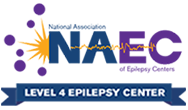A brain tumor is a collection or mass of abnormal cells in the brain. Brain tumors can be either benign (noncancerous) or malignant (cancerous). Malignant brain tumors tend to grow rapidly compared to benign tumors. More than 120 types of brain and central nervous systems tumors have been documented.
Types:
Brain tumors may be categorized into the following:
Skull Base Tumors: A skull base tumor is an abnormal growth in the brain that meets the base of the skull. While most of these cancers are benign (not cancerous), they can still cause serious problems as they continue to grow, placing excessive pressure on the brain.
Meningiomas: These are benign tumors that form from the layers of tissue that protect the brain and spinal cord. They often must grow relatively large before the individual expresses symptoms.
Metastatic Brain Tumors: Also called secondary brain tumors, this condition occurs when cancer cells spread (metastasize) from different parts of the body. It is the most common form of brain tumors and happens when cancer cells break away from the primary tumor and spread to the brain, usually through the bloodstream.
Brain Tumor Symptoms
The most common symptoms of brain tumors include:
- Headaches, often in the morning
- Nausea and vomiting
- Changes in your ability to talk, hear, or see
- Problems with balance or walking
- Problems with thinking or memory
- Feeling weak or sleepy
- Changes in your mood or behavior
- Seizures
Brain Tumor Causes
The exact cause of each brain tumor may be difficult to identify. However, certain risk factors for brain tumors may include:
- Family history
- Age
- Chemical exposure
- Exposure to radiation
Brain Tumor Treatments
Treatment of brain tumors will typically involve Stereotactic Radiosurgery (SRS) through a system called CyberKnife. SRS is a centralized form of radiation that focuses high-power energy on the area where the tumor is located.
CyberKnife targets only the tumor, so there is little to no risk to surrounding tissues. Another benefit of the CyberKnife system is there is no need to be put to sleep during treatment, and the process causes no pain or adverse sensations.
Contact Brain2Spine Institute at (727) 351-6902 if you are experiencing any of the symptoms listed above or want a second opinion.
If you have suffered a severe brain injury, join the Tampa Bay Brain Injury Support Group, an inclusive community of brain injury survivors and caregivers.






